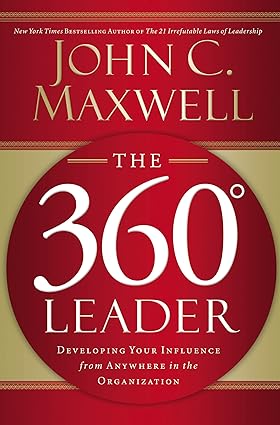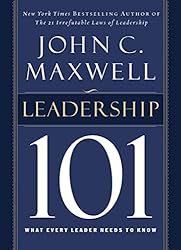account of, which is of the little child aforementioned. Her name is
Phebe Bartlet, daughter of William Bartlet. I shall give the
account as I took it from the mouths of her parents, whose veracity
none that know them doubt of.
She was born in March, in the year 1731. About the latter end
of April, or beginning of May, 1735, she was greatly affected by
the talk of her brother, who had been hopefully converted a little
before, at about eleven years of age, and then seriously talked to
her about the great things of religion. Her parents did not know of
it at that time, and were not wont, in the counsels they gave to
their children, particularly to direct themselves to her, by reason
of her being so young, and, as they supposed, not capable of
understanding; but, after her brother had talked to her, they
observed her very earnestly to listen to the advice they gave to
the other children, and she was observed very constantly to retire,
several times in a day, as was concluded, for secret prayer, and
grew more and more engaged in religion, and was more frequently in
her closet, till at last she was wont to visit it five or six times
in a day, and was so engaged in it, that nothing would, at any
time, divert her from her stated closet exercises. Her mother often
observed and watched her, when such things occurred, as she thought
most likely to divert her, either by putting it out of her
thoughts, or otherwise engaging her inclinations, but never could
observe her to fail. She mentioned some very remarkable instances.
She once, of her own accord, spake of her unsuccessfulness, in
that she could not find God, or to that purpose. But on Thursday,
the last day of July, about the middle of the day, the child being
in the closet, where it used to retire, its mother heard it
speaking aloud, which was unusual, and never had been observed
before; and her voice seemed to be as of one exceeding importunate
and engaged, but her mother could distinctly hear only these words
(spoken in her childish manner, but seemed to be spoken with
extraordinary earnestness, and out of distress of soul), “Pray
blessed Lord give me salvation! I pray, beg pardon all my sins!
“When the child had done prayer, she came out of the closet, and
came and sat down by her mother, and cried out aloud. Her mother
very earnestly asked her several times, what the matter was, before
she would make any answer, but she continued exceedingly crying,
and writhing her body to and fro, like one in anguish of spirit.
Her mother then asked her whether she was afraid that God would not
give her salvation. She then answered, “Yes, I am afraid I shall go
to hell!” Her mother then endeavored to quiet her, and told her she
would not have her cry-she must be a good girl, and pray every day,
and she hoped God would give her salvation. But this did not quiet
her at all-but she continued thus earnestly crying and taking on
for some time, till at length she suddenly ceased crying and began
to smile, and presently said with a smiling countenance, “Mother,
the kingdom of heaven is come to me!” Her mother was surprised at
the sudden alteration, and at the speech, and knew not what to make
of it, but at first said nothing to her. The child presently spake
again, and said, “There is another come to me, and there is
another-there is three;” and being asked what she meant, she
answered, “One is, thy will be done, and there is another-enjoy him
for ever;” by which it seems that when the child said, “There is
three come to me,” she meant three passages of her catechism that
came to her mind.
After the child had said this, she retired again into her
closet; and her mother went over to her brother’s, who was next
neighbor; and when she came back, the child, being come out of the
closet, meets her mother with this cheerful speech, “I can find God
now!” Referring to what she had before complained of, that she
could not find God. Then the child spoke again, and said, “I love
God!” Her mother asked her how well she loved God, whether she
loved God better than her father and mother, she said, “Yes.” Then
she asked her whether she loved God better than her little sister
Rachel, she answered, “Yes, better than anything!” Then her eldest
sister, referring to her saying she could find God now, asked her
where she could find God; she answered, “In heaven.” “Why,” said
she, “have you been in heaven?” “No,” said the child. By this it
seems not to have been any imagination of any thing seen with
bodily eyes that she called God, when she said I can find God now.
Her mother asked her whether she was afraid of going to hell, and
that had made her cry. She answered, “Yes, I was; but now I shall
not.” Her mother asked her whether she thought that God had given
her salvation; she answered, “Yes.” Her mother asked her when; she
answered, “To-clay.” She appeared all that afternoon exceeding
cheerful and joyful. One of the neighbors asked her how she felt
herself? She answered, “I feel better than I did.” The neighbor
asked her what made her feel better; she answered, “God makes me.”
That evening as she lay, abed, she called one of her little cousins
to her, that was present in the room, as having something to say to
him; and when he came, she told him that heaven was better than
earth. The next day being Friday, her mother, asking her her
catechism, asked her what God made her for; she answered, “To serve
him;” and added, “Everybody should serve God, and get an interest
in Christ”
She has manifested great love to her minister; particularly
when I returned from my, long journey for my health last fall, when
she heard of it, she appeared very joyful at the news, and told the
children of it with an elevated voice, as the most joyful tidings,
repeating it over and over, “Mr. Edwards is come home! Mr. Edwards
is come home I” She still continues very constant in secret
prayer, so far as can be observed (for she seems to have no desire
that others should observe her when she retires, but seems to be a
child of a reserved temper), and every night before she goes to bed
will say her catechism, and will by no means miss of it; she never
forgot it but once, and then after she was abed, thought of it, and
cried out in tears, “I have not said my catechism!” And would not
be quieted till her mother asked her the catechism as she lay in
bed. She sometimes appears to be in doubt about the condition of
her soul, and when asked whether she thinks that she is prepared
for death, speaks something doubtfully about it; at other times
seems to have no doubt, but when asked, replies “Yes,” without
hesitation.
The End



















